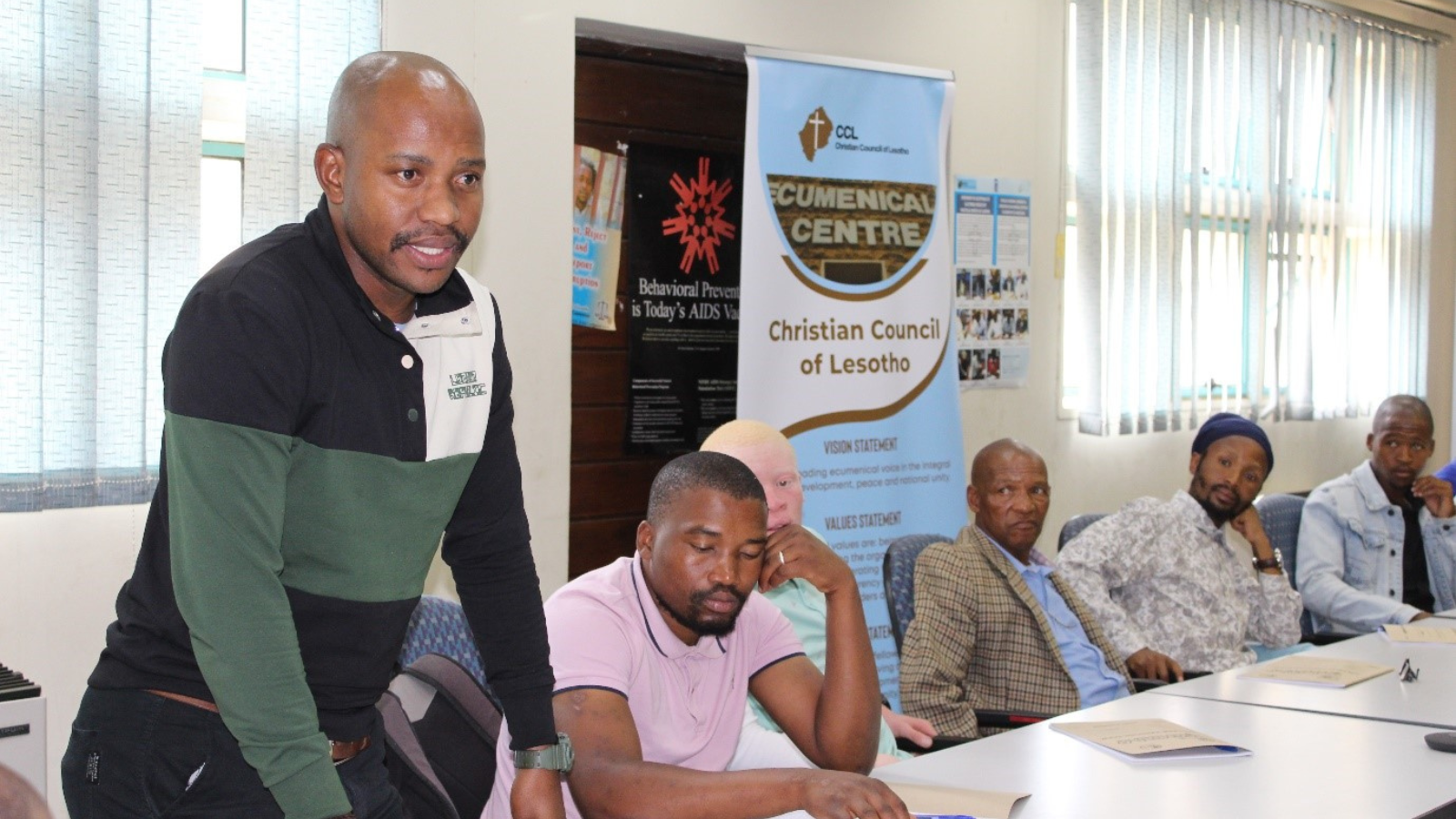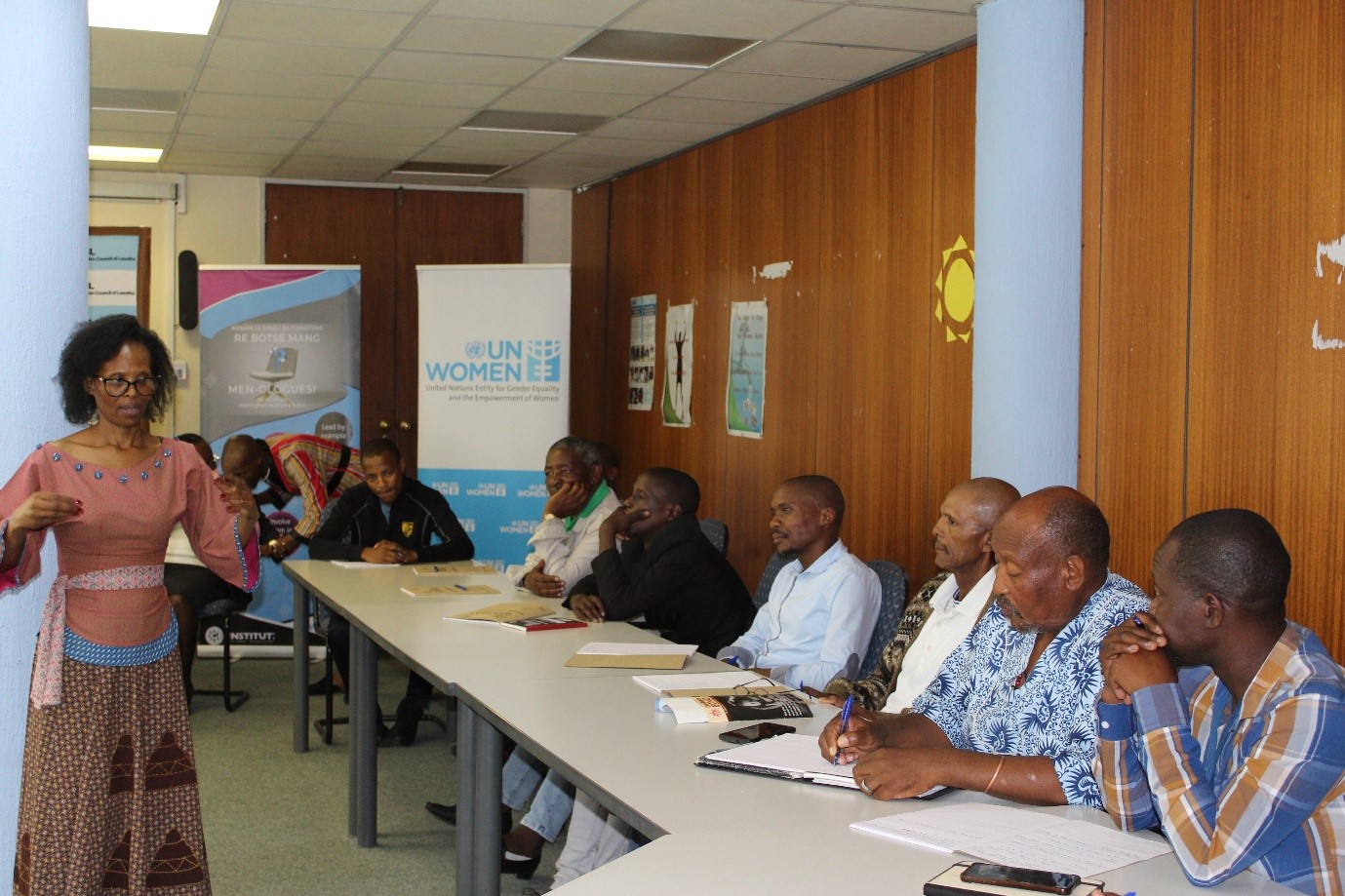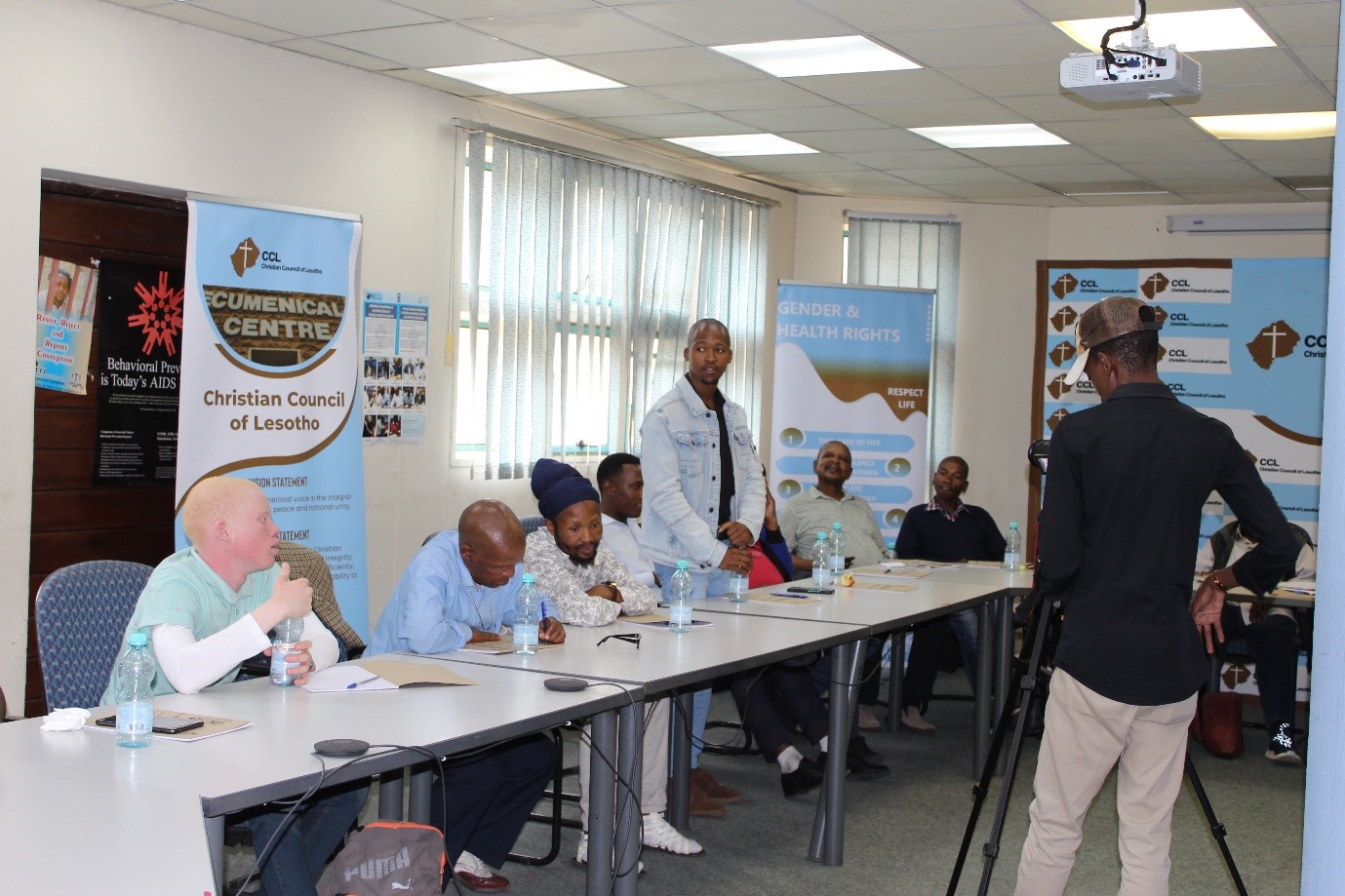Join the Conversation
Check out the latest and spread the word.
Stay updated via social media

In the beginning of 2023 two organizations partnered with male leaders in Lesotho to initiate men’s dialogues to discuss and find solutions to the factors that drive violence against women and girls and HIV infections in the Southern African nation.
UN Women South Africa Multi-Country Office, enabled by funds from UNAIDS Unified Budget, Results and Accountability Framework (UBRAF), supported women’s rights organization Gem Institute Lesotho and the Christian Council of Lesotho (CCL).

“We approached a group of men who lead in different sectors of the society in Lesotho from an academic theologian, the chairperson of the CCL, a gender specialist, to an HIV/AIDS expert, a, a teacher and a taxi owner – to look at harmful practices that affect women and girls, “explained Mpho Letima, president of Gem Institute Lesotho.
In consultation with male leaders and some extensive research and inspired by the HeForShe tools on engaging men and boys, Gem Institute and CCL drafted guidelines to drive the conversation in the men’s dialogues. The document covers three subject areas, mainly focused on the following subjects in the church: GBV, HIV/AIDS and discrimination, and the perception of power. We worked with six of the major churches in Lesotho to gather men, as a start.
“We decided to start with the church because initially there was a lot of discrimination and stigma towards people living with HIV/AIDS and we realised that many pastors were not equipped to help women in marriages where they were suffering abuse at the hands of their partners. In church, married women were expected to behave in a certain way that perpetuated this problem,” said Letima.
Over the past 12 months the Men’s Dialogues have taken place in ten districts across the country, engaging 350 men to date. Additionally, the audience has broadened to include men in the education system, in health care, community and traditional leaders and correctional services.

Sergent Kgotso Molebatsi of the Lesotho Correctional Services joined the dialogue through the work he does raising awareness on the consequence of crime.
“Here in Lesotho, we have a very serious problem with GBV, particularly sexual offences. Our cultural beliefs are some of the factors perpetuating the problem. Many men are raised to view themselves as superior and hold views such as: ‘women are kids to men; a woman has no word so whatever a man wants goes; or a woman should never deny a man nor complain nor raise her views. The other driver of GBV and HIV is poverty because of h igh unemployment levels. This forces young women into transactional relationships, making them vulnerable to GBV and HIV. This is why we need these dialogues to go wherever men and boys gather in urban areas, townships, and rural areas,” said Molebatsi.

Baphuti Kgononyane, an HIV/AIDS Testing Service counsellor, and psychosocial support specialist works with young men and leads men’s dialogues in this population.
“In our conversations we are finding that there’s a generational gap which results in a disconnect between parents and their sons. In our upbringing we are taught to fear our fathers and male figures. We are raised by our mothers who are often wounded and as a result resentful. The conversations we have about women and sex as peers are very negative and paired with toxic masculinity views you raise up a generation of men who have warped ideas about women. These dialogues are bringing about positive change because the perceptions the male participants are gradually changing, and we have received positive feedback even from their family members. The fact that we can get men to speak about these significant issues is win because men don’t talk, voluntarily, about what’s really going on internally, said Kgononyane.
Evidence-based work has proven that harmful social norms are among the main drivers of vulnerability of women and girls. We need to tackle the deep-seated convictions and mindsets of all of society, but particularly men. This can’t be achieved by a once-off program or campaign. Dialogues such as these are a continuous, transformational initiative that challenges thought patterns that breeds mindsets where these harmful norms are created. These dialogues allow men to tackle this thinking one idea at a time by questioning and challenging these norms through conversation. By constantly challenging themselves and these beliefs, a new set of norms gradually replace old ones that no longer serve our communities.
Check out the latest and spread the word.